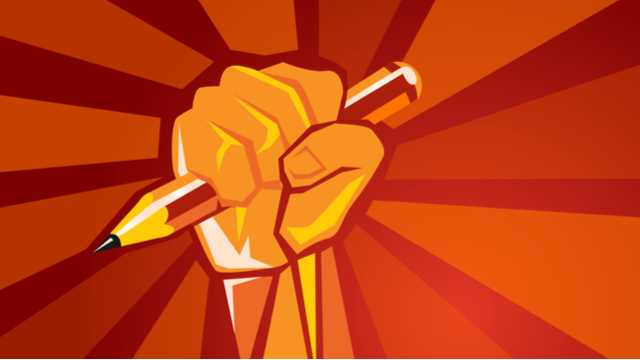Politicians have been reducing highly complex, nuanced arguments to a few memorable soundbites for generations, so perhaps it is not a surprise that a beast as sprawling as our freedom of speech is paraphrased, streamlined, clouded and reframed for short-term political gain – not least in the middle of a global pandemic.
I was moved to discuss this topic again in the light of some cheap political moves at the beginning of 2021, to explore the the way our right to freedom of speech is being manipulated and weaponised for cheap political gain, and cast a spotlight on the impact of this behaviour on less fortunate individuals.
"Free Speech Champions"
As I've argued elsewhere, free speech has limits. Unfortunately, narrow-minded politicians, bigots and wilful racists, misogynists, transphobes and the like don't typically differentiate between free speech and hate speech, or else, they have definitions of hate speech narrow enough to excuse themselves.
In February of this year, the British government announced plans to appoint a "Free Speech Champion" for UK universities. A source from the Department of Education told the Sunday Telegraph that “unacceptable silencing and censoring on campuses is having a chilling effect”. A small amount of digging will confirm that this is a largely fabricated story with a deeply political agenda on an issue which resonates with voters, but that isn't really the point of this post (more on this here).
This 'defence of academic freedom' is a textbook play to keep bigotry not only palatable but mainstream. It's a hallmark of indirect bigotry to be "defending" something, like free speech (nobody sums this up better than Natalie Wynn in her video about JK Rowling) in the same way that homophobes might say they are "defending marriage" or that TERFs are "protecting women". The people who will benefit from having their voice elevated by this Tory policy are racists, misogynists, transphobes, homophobes, neo-Nazis, Islamophobes and the like.
It's important to understand how we are being wilfully misled by our Government on this matter and how the idea of freedom of speech is being weaponised to serve their agenda. Next, I'll draw attention to the manipulation and reformatting of our perception of what freedom of speech really means in order to allow people with problematic, harmful or morally objectionable views to attempt to protect themselves.
The "right" to be heard
Bigots ritually obfuscate free speech with their right to be heard.
We have the right to express our views. But that does not amount to the right to be heard in any particular forum, at any particular time. In other words, freedom of speech does not come preloaded with a right to a platform.
For example, when Donald Trump was banned indefinitely from Twitter at the start of 2021, there was an outcry that deplatforming him amounted to an infringement upon his right to free speech. But nobody automatically has a right to any particular platform. Donald Trump could easily take his bigotry elsewhere – does anyone think for a moment he won't find ways to get his messages out into the world? Reports say he's considered platforms such as Parler and Gab, both known for their popularity amongst the far-right and conspiracy theorists, but these have recently been removed from Google and Apple's app stores after scores of examples of posts directly inciting violence were uncovered. What do we think is more important, giving a white supremacists a platform to spout hatred, or protecting black lives? Defending a lnon-existent right to say what you like, where you like, or defending bodies from harm? There's a well-established tradition of former presidents being offered numerous opportunities to continue to contribute their voice. I am in no doubt that, unfortunately for us, he will be exercising that privilege extensively.
Similarly, when it's argued "no-platforming" neo-Nazis or TERFs or whomever it may be at universities is stifling free speech, they conflate free speech with a right to be heard.
Nobody has the fundamental right to be heard.
Crying "Cancel Culture"
In Summer last year, as some may remember, J.K. Rowling was the headline signatory on an open letter signed by 150 public figures which denounced "cancel culture".
Let's start by differentiating between being cancelled and being called out.
Called out – To face social consequences for expressing or supporting a problematic, harmful or morally objectionable action or view, such as being openly criticised, deplatformed or facing a social media backlash.
Cancelled – To face a social attempt to bring about real-life consequences for expressing or supporting a problematic, harmful or morally objectionable action or view, such as losing your job, having your reputation ruined or being denied business opportunities.
It's important to recognise that some people face disproportionately severe consequences of public backlash which may not always be justified, and can have a significant personal impact. However, those most frequently crying "Cancel culture" are most frequently those with social or financial power or privilege (and so you could also argue, duty).
Being cancelled is increasingly conflated with something amounting to an infringement upon our fundamental right to free speech. It's often characterised as an attempt by liberals or activists to silence people who hold views they disagree with. People cry "cancel culture" when their hate speech is de-platformed or met with challenges or anger. People use "cancel culture" as a soundbite to position themselves as victims being intimidated by "social justice warriors" or whatever – as if social justice is some sort of evil force to be denounced and condemned – and thus denied their right to free speech.
In most cases, what they call being "cancelled" is actually just being called out. Either way, facing consequences for expression which harms others doesn't infringe free speech.
Instead, those that would invoke free speech when they are being "cancelled" are not in fact trying to secure their freedom of speech. Instead, what they aim to do is secure a non-existent right to speak without consequences.
It's a convenient play to confuse the two, because freedom of speech evokes such immediate emotional responses. But the move is entirely manipulative.
Not just an ideological debate
As I argued in my previous post, our right to speak freely ends where someone else's begins.
This post took a broadly political view of the issue, but none of us must forget that the protection and normalisation of bigoted views profoundly impacts individual people, whether they be Muslims facing abuse and violence in the streets because of attitudes caused by by engrained Islamophobia or trans youth taking their lives faced with the reality of living in a world where acceptance and support are patchy at best.
The unjustifiable enforcement of universal re-platforming isn't about fuelling genuine debate or furthering academic research. In reality, it platforms and legitimises hate and the incitement of hate, and creates threatening and unsafe environments for people who belong to groups who do not enjoy the power accorded to them by their perceived privileges.
Yes, this is about putting the record straight on the way that our right to freedom of expression is being distorted and weaponised for political gain, but far more importantly, it's about the reality that this isn't just a lofty ideological conversation. The outcomes of this debate create the stage for the unique, avoidable hardships and injustices of people's everyday lives caused by other human beings who care more about their right to say whatever they please.



